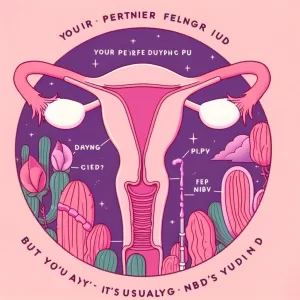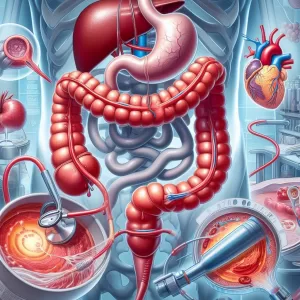Qu'est-ce que le cancer de l'ovaire ?
Désolé, aucun message n'a été trouvé.
**What is Ovarian Cancer?**
**Q: What is ovarian cancer?**
**A:** Ovarian cancer is a type of malignancy that originates in the ovaries, two small organs located on either side of the uterus. These organs produce hormones and release eggs for reproduction.
**Q: What are the risk factors for ovarian cancer?**
**A:** Risk factors for ovarian cancer include:
* **Age:** The risk of ovarian cancer increases with age.
* **Family history:** Having a close relative (mother, sister, daughter) with ovarian cancer increases one’s risk.
* **BRCA1/BRCA2 gene mutations:** These genetic mutations significantly increase the risk of ovarian and other cancers.
* **Inherited ovarian cancer syndromes:** Certain syndromes, such as Lynch syndrome and familial adenomatous polyposis (FAP), can increase the risk of ovarian cancer.
* **Lifestyle factors:** Certain lifestyle choices, such as smoking, obesity, and a sedentary lifestyle, may slightly increase the risk of ovarian cancer.
**Q: What are the symptoms of ovarian cancer?**
**A:** Early-stage ovarian cancer often has no noticeable symptoms. As the cancer progresses, symptoms may include:
* Abdominal swelling or bloating
* Frequent urinary urgency or difficulty
* Pelvic pain or discomfort
* Feeling full quickly or losing weight without trying
* Back pain
* Fatigue or other nonspecific symptoms
**Q: How is ovarian cancer diagnosed?**
**A:** Diagnosis of ovarian cancer may involve:
* **Pelvic exam:** A manual examination of the pelvic organs.
* **Transvaginal ultrasound (TVUS):** A probe is inserted into the vagina to create images of the ovaries and surrounding structures.
* **Blood tests:** To check for elevated CA-125 levels, a protein marker associated with ovarian cancer.
* **Biopsy:** Removing a sample of tissue from the ovary for examination under a microscope.
**Q: How is ovarian cancer treated?**
**A:** Treatment for ovarian cancer typically combines one or more of the following:
* **Surgery:** Removal of the affected ovary(ies) and fallopian tubes (salpingo-oophorectomy)
* **Chemotherapy:** Systemic therapy using drugs to kill cancer cells
* **Radiation therapy:** Using X-rays or other high-energy beams to target and destroy cancer cells
* **Targeted therapy:** Medications that specifically target molecular markers on cancer cells
**Q: What is the prognosis for ovarian cancer?**
**A:** The prognosis for ovarian cancer depends on factors such as the stage at diagnosis, the type of tumor, and the patient’s individual characteristics. With early detection and treatment, the 5-year survival rate is often high. However, ovarian cancer can be difficult to diagnose early, so the overall survival rate is lower than that of many other types of cancer.
**Q: How can I reduce my risk of ovarian cancer?**
**A:** While not all risk factors for ovarian cancer are modifiable, certain measures may potentially reduce risk:
* **Genetic testing:** Consider genetic testing for BRCA1/BRCA2 mutations to determine if you have an increased risk.
* **Hormonal contraception:** Long-term use of hormonal contraceptives, such as birth control pills, has been shown to decrease the risk of ovarian cancer.
* **Breastfeeding:** Some research suggests that breastfeeding may slightly reduce the risk of ovarian cancer.
* **Ovarian cancer screening:** Screening is not routinely recommended, but it may be an option for women with a high risk.
Un commentaire
Laisser un commentaire
Articles populaires







Cancer des ovaires